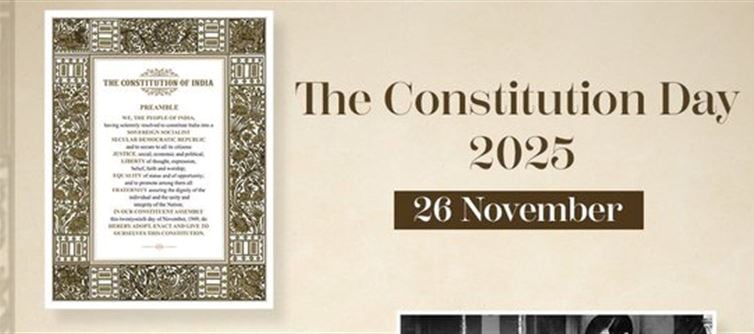
Are We Still Living the Constitution We Adopted?
India at 75 years of the Republic still wrestles with the very promises it made to itself.
When the Constituent assembly adopted the Constitution in 1949, it imagined an india anchored in liberty, equality, and fraternity. But today, the distance between those ideals and ground reality is no longer philosophical—it is measurable.
Take liberty. Over the last decade, india has seen an explosion of arrests for social media posts, FIRs for satire, and detentions under broad “public order” laws. Internet bans—once rare—are now routine, sometimes imposed for exams or local protests. A right meant to empower citizens is increasingly regulated to protect political comfort.
On equality, the contradictions are sharper. Caste crimes continue to rise, but conviction rates remain abysmally low. Affirmative action debates are reduced to electoral math, not social justice. Even wallet PLATFORM' target='_blank' title='digital-Latest Updates, Photos, Videos are a click away, CLICK NOW'>digital spaces mirror inequality, where algorithmic biases amplify existing social hierarchies.
And what of fraternity—the most fragile pillar? Polarisation has turned into a political weapon. Hate speech circulates online with little accountability. Communities retreat into suspicion, while public institutions appear hesitant to act unless the victims are “politically convenient.”
The Constitution was never a mere document; it was a pact of trust. Yet that trust frays each time dissent is criminalised, each time the internet is shut down, each time institutions appear aligned with power rather than people.
The question is no longer whether the Constitution is alive, but whether we still recognise the india it envisioned—and whether we have the courage to reclaim it.




 click and follow Indiaherald WhatsApp channel
click and follow Indiaherald WhatsApp channel